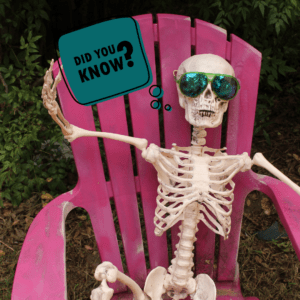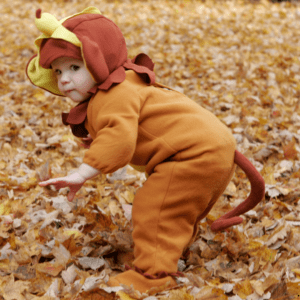The facts about slipped discs
If you’ve ever experienced a slipped disc, you’ll know that it is a super painful ordeal 😭 And if you’re reading this because you think you have a slipped disc, we feel your pain! But we are here to help.
Here is everything you need to know about slipped discs, what causes them and what you can do if you’re in pain.
What is a slipped disc?
First things first, you probably know that the human spinal column is made up of a series of bones called vertebrae. These are stacked one on top of the other with cushioned discs in between each vertebra, which helps protect the bones themselves by absorbing shock from day-to-day activities such as walking, lifting, and twisting.
Every disc in your spine comprises two parts: a soft jelly-like inner bit surrounded by a tougher outer ring. An injury, sometimes even very small ones, can cause the inner part of the disc to push through the outer ring.
Can we just take a moment to think about how sore that sounds! 😲
If the slipped disc presses too hard on one of the nerves in your spine, you might also feel numbness and pain along that nerve.
The most interesting part is that a slipped disc is not actually a disc that has slipped 🤯 It is a disc that has herniated. Hence, we call it a herniated disc.
What causes a herniated disc?
A few things can cause a disc herniation, sometimes even as simple as picking something up whilst in the wrong position. Common causes include:
- A lack of movement in the vertebrae above and below the disc. These movement of a vertebrae pumps nutrients into the disc. If the movement stops (because joints are stuck), the disc loses nourishment and is more prone to injury.
- Twisting backwards (like when we get something out of the back seat of the car). The back/side part of the disc is the weakest so this can cause an already damaged disc to herniate.
- Exercising too hard – this can put extra pressure on the disc!
- Lifting heavy objects – also puts extra pressure on the discs. 🏋️♀️
- Vibration from driving or operating machinery. 🚗
- Being sedentary or overweight. 🤦♀️
Something slightly scary is that there is a long-term complication from having a herniated disc called saddle anesthesia. This is when the herniated disc presses on the spinal nerves and causes the loss of sensation in your inner thighs, the back of your legs and your bum. It could even mean losing control of your bladder your bowel functions. This is why it is very important to always have this problem assessed quickly.
What would I feel if I have a herniated disc?
The results of a herniated disc can present in different symptoms, many of which are very painful 😒 These include:
· Pain/numbness or tingling that extends specifically to one of your arms or one of your legs.
· Pain that gets worse at night or when you try to do certain movements.
· Pain that is aggravated by standing or sitting.
· Pain when walking even a short distance.
· Unexplained weakness in your muscles.
· A tingling, aching, or burning sensation in the area where the disc has herniated.
· Severe muscle spasm causing pain when you move your lower back or neck.
The actual type of pain you experience differs from person to person. A disc herniation can occur in any part of your spine, from your neck to your lower back.
The bad news is that in some cases you may need surgery to remove or repair the disc. However, fear not! 💚 There are many treatments that we can offer to not only ease your pain but the herniation to repair.
If a disc herniation is not treated, it can lead to permanent nerve damage. So, it’s important that you get help as soon as possible.
How do you treat it?
No matter the problem you’re experiencing, our treatments are always tailored to your needs. When treating a herniated disc, you can rest assured that our approach will always be a gentle one 🙌. Two particular techniques we would use are flexion-distraction (a gentle traction of the joints to take pressure off the nerves) and dry needling (a type of acupuncture for muscle spasm). We may contact your GP for some medication while you heal and to recommend you to be referred for MRI scans should your symptoms appear complicated.
We can also recommend exercises that strengthen and stretch your back (and your surrounding muscles) when your initial pain reduces.
If you suspect that you have a herniated disc, our advice is: don’t wait! Give us a call now. 📞





